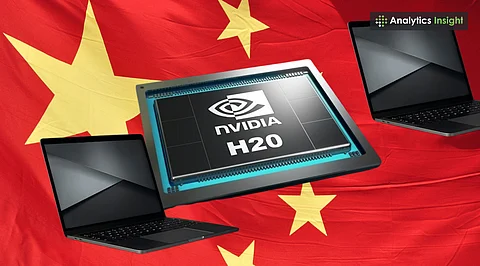Nvidia’s plans to resume sales of its H20 AI chips to China have encountered significant delays due to ongoing US export restrictions. The company indicated that these bans, alongside diminished production capacity at Taiwan Semiconductor Manufacturing Company (TSMC), have complicated their supply chain. As a result, Nvidia may need up to nine months to effectively reset its production lines.
Despite optimistic statements from CEO Jensen Huang, who suggested that supply would eventually increase and licensing processes may accelerate, conflicting reports have emerged regarding the immediate resumption of production. Huang has actively sought support from government officials, including meetings with former President Donald Trump, to bolster the US’s position in the global semiconductor market.
In a notable development within the tech investment landscape, former investor at Instacart and Coatue, Kris Fredrickson, has launched a new investment fund named Verified Capital. This fund, which totals $175 million, is dedicated to supporting innovative AI startups. Fredrickson’s approach involves a selective strategy, targeting only 8 to 10 high-potential companies, with initial investments already made in firms like Harvey AI, Atlas, and Perplexity.
Fredrickson’s goal is to identify transformative startups that are reshaping the technology landscape. His previous experience and founder-friendly ethos are expected to inform his investment choices as he navigates a competitive environment for AI funding.
Meanwhile, LTIMindtree has announced plans to hire 5,000 new graduates in the current fiscal year, resuming recruitment efforts that were previously halted. The company has already onboarded 1,600 freshers in the first quarter. With a utilization rate of 88.1%, LTIMindtree is emphasizing AI-driven transformation amidst a challenging macroeconomic backdrop. CEO Venu Lambu has highlighted the importance of structured onboarding and continuous skill development, as well as margin growth through AI adoption. This focus has contributed to a 17% increase in the company’s order book, now valued at $1.6 billion.
In educational advancements, the organization MLD is set to offer complimentary AI courses starting in 2025. These courses will cover topics such as deep learning, natural language processing (NLP), and predictive maintenance. Participants will engage in hands-on projects and utilize Jupyter notebooks and cloud GPU lab environments. The courses are designed for both beginners and working professionals seeking to enhance their skills and career prospects in the rapidly evolving tech landscape.
On a more concerning note, Indian cryptocurrency exchange CoinDCX recently reported a security breach that resulted in losses of approximately $44.2 million due to a server hack affecting an internal operational wallet. The company has assured users that no customer funds were impacted and that the losses will be managed through treasury reserves. Following the breach, CoinDCX experienced a surge in withdrawals and temporary issues with its application programming interface (API). The co-founders have communicated with the Indian Computer Emergency Response Team (CERT-In) and are collaborating with global security firms to address the situation. The exchange’s services have since been fully restored, and the company is committed to maintaining transparency throughout the investigation.
These developments underscore the dynamic nature of the tech industry, marked by both challenges and opportunities as companies navigate complex regulatory environments and strive for innovation.





































































